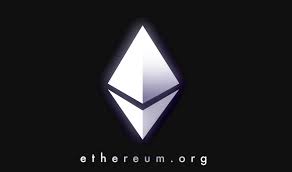What is ethereum and how does it differ from bitcoin?
By
thereum is a rising star of the cryptocurrency world. Closing in on the original digital currency bitcoin, it has swiftly become the second most valuable of the new payment methods.
After it was launched in 2015, the value of ether (ethereum’s currency) value has increased more than 2,300 per cent in the past year and one ether is now almost $300 (£230).
Here’s everything you need to know about ethereum.
What is ethereum?
Ether is the second most valuable form of digital money after bitcoin. The technology it runs on is called ethereum, which was first described by 19-year-old bitcoin programmer Vitalik Buterin in 2013.
Buterin envisaged ethereum as an improvement on bitcoin. Like bitcoin, it is a decentralised payment network, with its own cryptograpic currency, that allows anonymous payments to be sent across the internet without the need for a bank or other third party.
Transactions are stored in a decentralised ledger, the blockchain, and are visible for everyone on the network to see.
How does it differ from bitcoin?
As the second-biggest cryptocurrency after bitcoin, ethereum has inevitably drawn comparisons to it. Its rapid rise has also led to claims of a bubble. But advocates say ethereum has several advantages over bitcoin that make it more useful.
The first is that ethereum allows for “blocks”, the records of cryptocurrency transactions, that can be created much more quickly than bitcoin. While bitcoin has been more widely adopted by online retailers and even some physical stores, ethereum’s fans believe its efficiency makes it better for transactions, rather than storing value.
But the major advantage of ethereum is that the technology allows for computer applications, not just the currency, to run on the network. Bitcoin’s appeal lies in money that is not controlled by any one party and does not have to run through a central server, but ethereum allows not just money, but all sorts of other things to run on the network. If you store files on a cloud storage service like Dropbox, you are trusting Dropbox to take care of it, but on a decentralised storage network you are putting your faith in others who are using it and have an interest in maintaining it.
A number of apps are being built on Ethereum, and the network is also being used by start-ups to raise money with initial coin offerings, which exchange ether or other currencies for special “tokens” that grant access to a service.
Even its fans often struggle to explain the benefits of ethereum, but one thing is for certain, it has rocketed in popularity – and price – in recent months. The total value of all the ether in circulation is now $27.8 billion (£21.4bn), against $55.7 billion (£43bn) for bitcoin.
What affects its price?
The price of ethereum has climbed more slowly than bitcoin since it launched, holding steady at around $10 for the first 18 months. Then in March 2017 it started to climb steadily, hitting a peak of $395 in June before plummeting to $155 a month later and then rising again.
The rise was in no small part thanks to a spike in the value of bitcoin, which fuelled interest in online currencies. It has also received high profile backing in recent months from large organisations, including Microsoft, JP Morgan and Intel.
Its dramatic dips in the past have been related to security concerns and general market wobbles, including sell-offs by big investors or a rush of fake news. In July the price of ethereum dropped more than 20 per cent in a day following a drop in confidence and a rumour later proved false that founder Buterin had died.
Who created ethereum?
One of the biggest mysteries in the technology world is who created bitcoin. The infamous pseudonym Satoshi Nakamoto has plagued cryptocurrency users and journalists who have sought to unmask the inventor. Unlike bitcoin, ethereum’s creator has always been in the open.
A Canadian citizen born in Russia, Buterin published his idea for the digital currency in 2013 when he was 19, and went on to set it up over the next two years. Buterin was mathematically gifted from a young age and won a bronze medal at the International Olympiad in Informatics in 2012.
He started writing for specialist bitcoin websites after hearing about the cryptocurrency from his father when he was 17. He proposed the idea for ethereum in 2013 as a “decentralised mining network and software development platform rolled into one”. After receiving a Thiel Fellowship worth $100,000 in 2014 he dropped out of the University of Waterloo. Buterin and Canadian entrepreneur Joseph Lubin co-founded Ethereum Switzerland GmbH later that year.
How many people use ethereum?
There are almost 5.3 million cryptocurrency wallets that hold ether, according to Etherscan. Wallets are the equivalent of accounts for ethereum and individuals can have more than one. The number of wallets with ether in has dramatically increased in recent months, up from 1.6 million in May.
What can I spend it on?
Ethereum, like other cryptocurrencies, is known for being largely anonymous and secure against fraud and theft, as its transactions are logged in a decentralised ledger. Users can transact large sums without having to pay fees because middle men, such as banks, are cut out.
Ether can be spent in a handful of online stores and with cryptocurrency Mastercard and Visa “credit cards”. They can also be stored in online wallets in the hope the currency will gain in value and their investment will accumulate into a lucrative sum.
Should I invest in ethereum?
Ethereum’s price has soared recently and could continue to climb in the coming months. Cryptocurrencies are notoriously volatile and users are warned that the growing bubble could burst any time. But many have become millionaires overnight thanks to ethereum.

